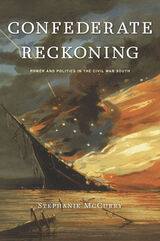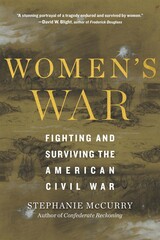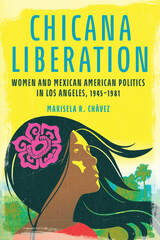
Pulitzer Prize Finalist
Winner of the Frederick Douglass Book Prize
Winner of the Merle Curti Award
“McCurry strips the Confederacy of myth and romance to reveal its doomed essence. Dedicated to the proposition that men were not created equal, the Confederacy had to fight a two-front war. Not only against Union armies, but also slaves and poor white women who rose in revolt across the South. Richly detailed and lucidly told, Confederate Reckoning is a fresh, bold take on the Civil War that every student of the conflict should read.”
—Tony Horwitz, author of Confederates in the Attic
“McCurry challenges us to expand our definition of politics to encompass not simply government but the entire public sphere. The struggle for Southern independence, she shows, opened the door for the mobilization of two groups previously outside the political nation—white women of the nonslaveholding class and slaves…Confederate Reckoning offers a powerful new paradigm for understanding events on the Confederate home front.”
—Eric Foner, The Nation
“Perhaps the highest praise one can offer McCurry’s work is to say that once we look through her eyes, it will become almost impossible to believe that we ever saw or thought otherwise…At the outset of the book, McCurry insists that she is not going to ask or answer the timeworn question of why the South lost the Civil War. Yet in her vivid and richly textured portrait of what she calls the Confederacy’s ‘undoing,’ she has in fact accomplished exactly that.”
—Drew Gilpin Faust, New Republic
“A brilliant, eye-opening account of how Southern white women and black slaves fatally undermined the Confederacy from within.”
—Edward Bonekemper, Civil War News
The story of the Confederate States of America, the proslavery, antidemocratic nation created by white Southern slaveholders to protect their property, has been told many times in heroic and martial narratives. Now, however, Stephanie McCurry tells a very different tale of the Confederate experience. When the grandiosity of Southerners’ national ambitions met the harsh realities of wartime crises, unintended consequences ensued. Although Southern statesmen and generals had built the most powerful slave regime in the Western world, they had excluded the majority of their own people—white women and slaves—and thereby sowed the seeds of their demise.
Wartime scarcity of food, labor, and soldiers tested the Confederate vision at every point and created domestic crises to match those found on the battlefields. Women and slaves became critical political actors as they contested government enlistment and tax and welfare policies, and struggled for their freedom. The attempt to repress a majority of its own population backfired on the Confederate States of America as the disenfranchised demanded to be counted and considered in the great struggle over slavery, emancipation, democracy, and nationhood. That Confederate struggle played out in a highly charged international arena.
The political project of the Confederacy was tried by its own people and failed. The government was forced to become accountable to women and slaves, provoking an astounding transformation of the slaveholders’ state. Confederate Reckoning is the startling story of this epic political battle in which women and slaves helped to decide the fate of the Confederacy and the outcome of the Civil War.

Winner of the PEN Oakland–Josephine Miles Award
“A stunning portrayal of a tragedy endured and survived by women.”
—David W. Blight, author of Frederick Douglass
“Readers expecting hoop-skirted ladies soothing fevered soldiers’ brows will not find them here…Explodes the fiction that men fight wars while women idle on the sidelines.”
—Washington Post
The idea that women are outside of war is a powerful myth, one that shaped the Civil War and still determines how we write about it today. Through three dramatic stories that span the war, Stephanie McCurry invites us to see America’s bloodiest conflict for what it was: not just a brothers’ war but a women’s war.
When Union soldiers faced the unexpected threat of female partisans, saboteurs, and spies, long held assumptions about the innocence of enemy women were suddenly thrown into question. McCurry shows how the case of Clara Judd, imprisoned for treason, transformed the writing of Lieber’s Code, leading to lasting changes in the laws of war. Black women’s fight for freedom had no place in the Union military’s emancipation plans. Facing a massive problem of governance as former slaves fled to their ranks, officers reclassified black women as “soldiers’ wives”—placing new obstacles on their path to freedom. Finally, McCurry offers a new perspective on the epic human drama of Reconstruction through the story of one slaveholding woman, whose losses went well beyond the material to intimate matters of family, love, and belonging, mixing grief with rage and recasting white supremacy in new, still relevant terms.
“As McCurry points out in this gem of a book, many historians who view the American Civil War as a ‘people’s war’ nevertheless neglect the actions of half the people.”
—James M. McPherson, author of Battle Cry of Freedom
“In this brilliant exposition of the politics of the seemingly personal, McCurry illuminates previously unrecognized dimensions of the war’s elemental impact.”
—Drew Gilpin Faust, author of This Republic of Suffering
READERS
Browse our collection.
PUBLISHERS
See BiblioVault's publisher services.
STUDENT SERVICES
Files for college accessibility offices.
UChicago Accessibility Resources
home | accessibility | search | about | contact us
BiblioVault ® 2001 - 2024
The University of Chicago Press









